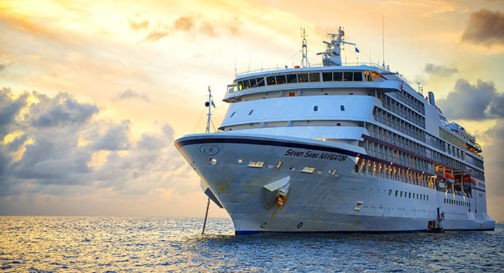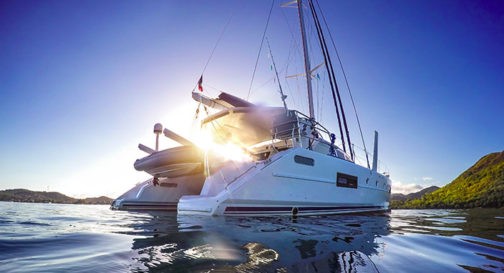Does Maritime Law Apply to Lakes and Rivers?
July 09, 2022
When you are involved in an accident or an incident on a lake or a river, you may not even consider that a special body of federal law will govern any claims you have arising from that accident or incident. Although lakes and rivers seem like the domain of state law, under certain circumstances these waterways may actually be governed by federal maritime law. Maritime law can differ significantly from state law and may also obligate you to pursue your claim in federal court, which can have different rules and procedures from state court.
Therefore, if you have been in an accident on a lake or river, you should not turn to just any attorney for help. Instead, you should speak to a maritime law attorney about your case. A maritime lawyer can review the facts and circumstances of your case to advise you whether maritime law may apply to your claims. A maritime lawyer will also have the special experience necessary to ensure that your rights are timely and properly pursued.
What Is Maritime Law?
Maritime law, also called admiralty law, refers to the national laws and regulations and international conventions and treaties that govern private affairs that occur on navigable water or in other maritime businesses. Maritime law covers injuries that occur on board or that are caused by vessels or injuries to maritime workers as well as vessel damage and cargo damage, in addition to issues such as the rights to transport goods and passengers in U.S. waters and between U.S. ports, vessel safety, maritime insurance, and the contractual relationships that govern the transportation of cargo and passengers. Maritime law does not cover the use of the oceans, which is a separate area of law known as the Law of the Sea.
Important Maritime Acts
Today, most of the U.S.’s maritime law is codified into Title 33 and Title 46 of the United States Code. Important statutes that make up domestic maritime law include:
- The Carriage of Goods by Sea Act
- Death on the High Seas Act
- Limitation of Liability Act of 1851
- The Passenger Vessel Services Act of 1886
- Merchant Marine Act of 1920 (Jones Act)
- Longshore and Harbor Workers’ Compensation Act
- The Public Vessels Act & the Suits in Admiralty Act
Courts also still rely on historical concepts that stretch back hundreds of years in maritime law, such as “maintenance and cure” and “salvage.”
In addition to domestic maritime law, there are several international conventions and treaties that also provide maritime rules and standards. Some of the most important ones include:
- The Safety of Life at Sea (SOLAS) Convention
- The Maritime Labor Convention
- The International Convention for the Prevention of Pollution from Ships (MARPOL)
- The International Convention on Standards of Training, Certification and Watchkeeping for Seafarers
When Does Maritime Law Apply?
Generally speaking, federal maritime law will apply to any case that arises on navigable waters. A body of water will be considered “navigable” if it:
- Experiences the ebb and flow of tides
- Connects to a continuous interstate waterway
- Has navigable capacity
- Is actually navigable
Can Maritime Law Apply to Cases Arising on Lakes and Rivers?
Where a lake or river meets all four criteria to be considered “navigable,” then maritime law may apply to any legal claims and cases that arise from an incident on said lake or river. Lakes and rivers are typically deemed navigable when they are used to support interstate or international trade. Therefore, lakes and rivers that span over state or national borders are usually considered navigable. In addition, rivers that are contained entirely within one state may also be deemed “navigable” if they connect to a lake or other body of water that crosses state or national borders or otherwise facilitates interstate or international trade (such as connecting to the open ocean).
Does State Law Apply to a Navigable Lake or River?
Under both the U.S. Constitution and federal law, any claims involving injury or damage to property caused by a vessel that can travel on navigable waters are subject to federal maritime law and to the exclusive jurisdiction of federal courts. State law cannot apply to such claims. However, in certain circumstances, a plaintiff with a maritime law claim may have the option of filing suit in state court under the “savings to suitors” clause under the federal statute granting exclusive jurisdiction over admiralty claims to the federal government.
Even where a plaintiff may be entitled to pursue their maritime claims in state court, the state court is still obligated to enforce federal maritime law to resolve the substantive issues of the case. However, the state court may use its own procedural rules to manage the case. A plaintiff therefore may choose to pursue their case in state court, if they have the option, if they feel the procedural rules are more favorable to them. Of course, the defendant may also have the right to remove a case from state court to federal court where the claim could have been originally filed in federal court.
Unfortunately, federal courts (including the U.S. Supreme Court) have routinely acknowledged that it is not always clear when federal maritime law or state law applies to a case or whether a plaintiff may be entitled to bring their claim in state court versus federal court. This makes it important to speak to an experienced maritime law attorney about your case and to discuss your legal options.
Contact The Law Offices of Preston Easley for a Free Consultation to Discuss Whether Maritime Law May Apply to Your Case
If you were injured in an accident on a lake or a river, do not assume that state personal injury laws apply to your case. Your rights to financial compensation may in fact be governed by federal maritime law. Contact The Law Offices of Preston Easley today for a free, no-obligation case evaluation to discuss the applicability of maritime law to your injury claims with a knowledgeable maritime accident attorney from our firm.










